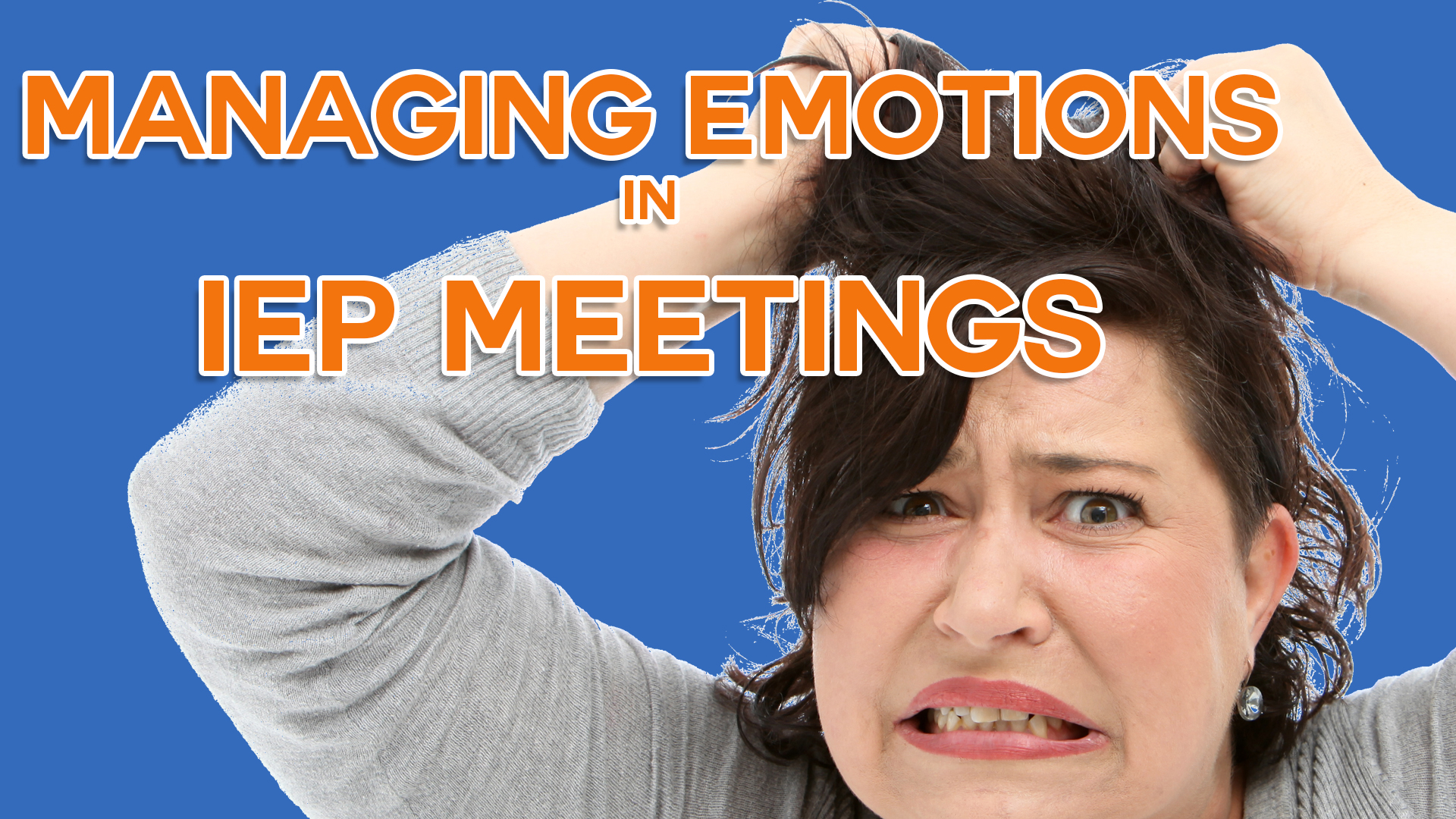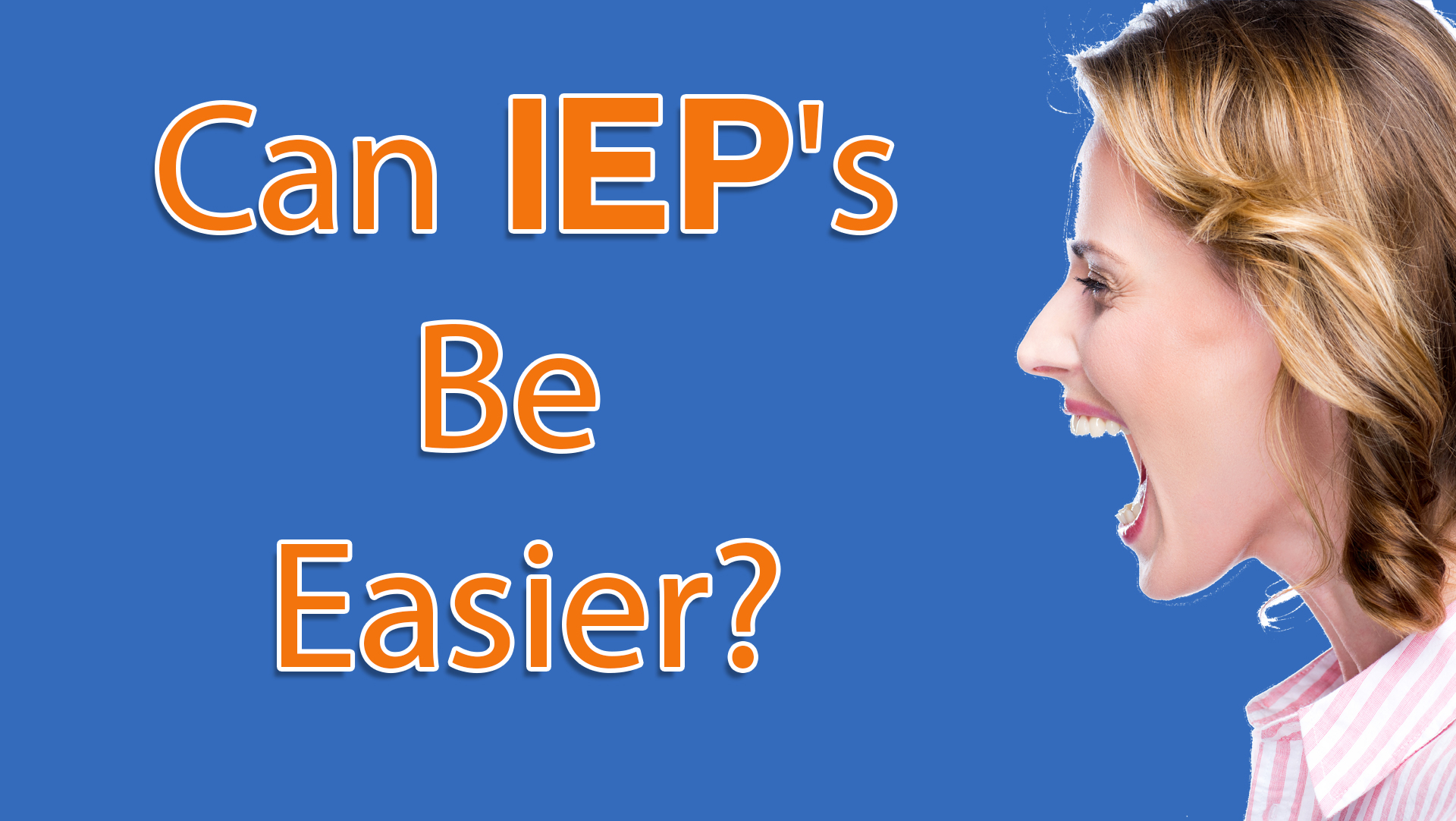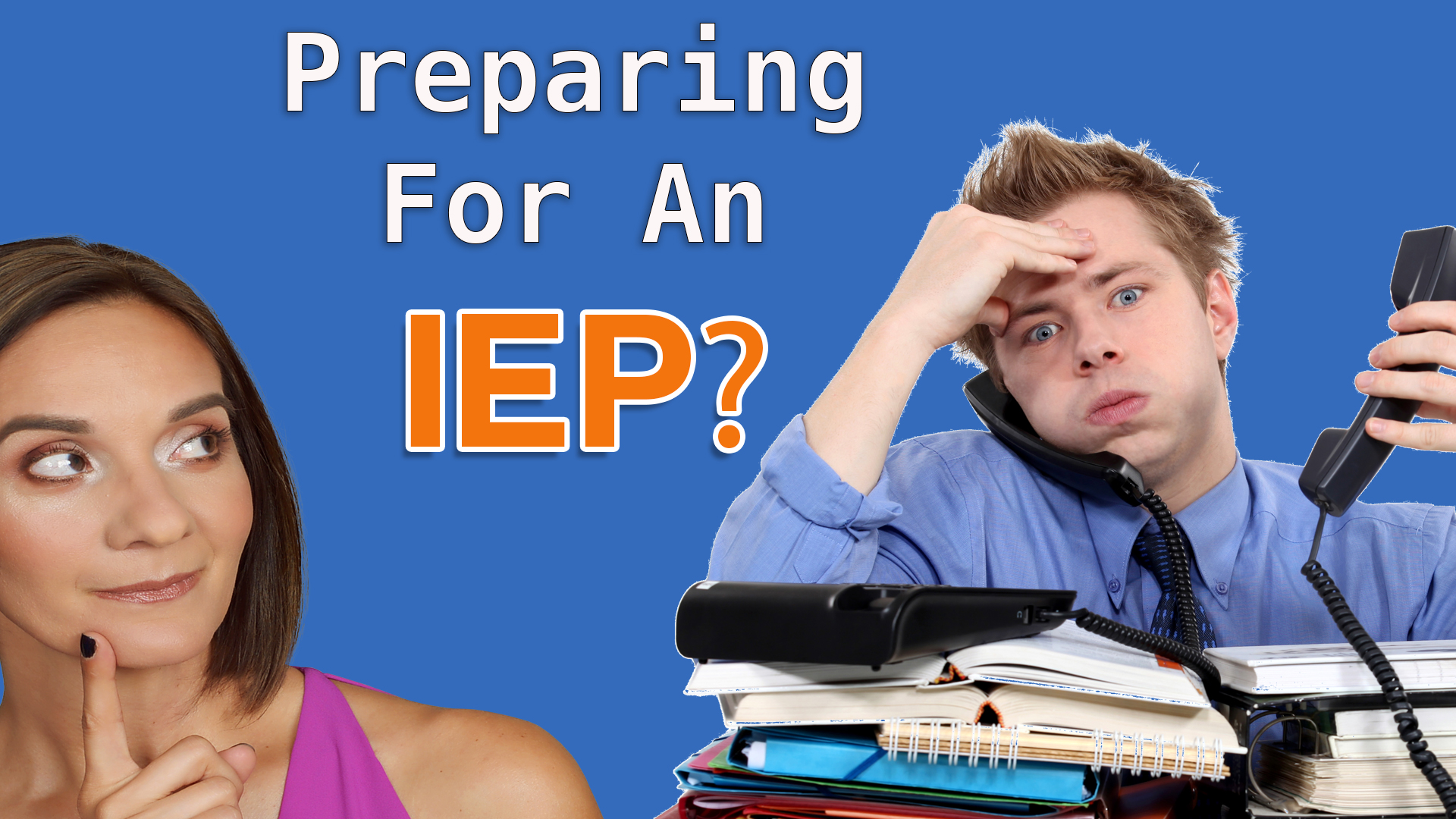
IEP's can be difficult and time-consuming Unless you are armed with the right information. That's why we've put together this free IEP video series. To help you:
- Decide if an IEP is right for your child
- Make the process is as easy as possible
- Get the best IEP possible for your child.
You can get the series here

Deciding whether or not an IEP (Individualized Education Plan) is right for your child is a difficult task. If you don't pursue an IEP and your child needs one they won't get the help they need. If you do and it is not appropriate then you'll waste an incredible amount of time, money, and effort.
This video will educate you on whether an IEP is right for your child or not. In the end, it is a parent's choice and is subject to qualifying but the advice in the video will help you make that decision. You'll get advice from other parents who have been through both the good and the bad of IEP's. Advice from school administrators and teachers. Advice from attorneys and advocates. And much more. Watching this video all the way through will save you an immense amount of time and if you do need an IEP for your child you'll start the process more educated.
Even the easiest IEP's (Individualized Education Plan) are difficult. Are there ways to stack the odds in your favor? Can you make the IEP process easier? Or at least not harder?
This team of experts talks about the importance of collaboration. How it can affect the overall outcome of the IEP and determine just how difficult the process is. Parents give their experiences. Teachers talk about their perspectives.
If you are thinking about an IEP then this video series will give you the information you need to prepare for the IEP process
IEP meetings are usually very emotional. Parents are worried about their child's future. You might feel as if it is you against the school system. It may feel as if all they can see is your child's faults. IEP meetings can be traumatic experiences and when they go wrong that can lead to bigger problems.
An IEP meeting gone wrong can lead to your child not getting what they need. You may then need to get lawyers and other professionals involved. It can get very expensive.
The outcome of these meetings leads to huge repercussions.
That's why it's critically important to go in with your emotions managed as well as possible. You don't want this to be a fight. You want it to go as smoothly as possible. This video will help you make sure that happens.
Managing emotions in an IEP meeting

To get an IEP (individualized Education Plan. 504 plan, ARD meeting, Admission Review and Dismissal) for your child, you are going to need to get a diagnosis. However, how you get that diagnosis has a major effect on the outcome. Diagnosis can be provided by a pediatrician, a psychologist, other mental health professionals, and in some cases the school. Arguably this diagnosis can be different depending on where it comes from. Certainly, it will vary in level of detail.
The actual diagnosis and its level of detail will absolutely affect what services will be provided in the IEP. So where you get the diagnosis is one of the most important decisions. There is a great deal of controversy around this so we covered both sides in this video. If parents watch the whole thing they will be able to make an informed decision based on the opinions of both sides.
Also important to recognize is that the diagnosis will have a psychological effect on the child. Sometimes positive. Sometimes negative. Sometimes both. So this should be taken into consideration.
Helping parents prepare for an IEP (individualized education plan). Getting the right IEP is critical for your child's future. How you prepare for that IEP makes all the difference. Planning and preparation is key and this video will show you how.
Parents need to be involved in their childrens education. Both at home and in the IEP process. Children with involved parents are far more likely to succeed. Yet the IEP process is new to most parents and very difficult. That's why we have created this video series for you. So you can be an informed parent in an IEP meeting.
It's common for parents to get steamrolled in IEP (individualized Education Plan) meetings. But the reality is that the parent should be in control. Parents are the experts in their children. If they are observant they know more about that child than anyone. Educators have subject matter expertise and experience, but parents are the child's first teacher.
This video helps parents understand how their expertise can contribute to the IEP process, the IEP meeting, and carrying out the IEP. This parental involvement is necessary for the IEP and in fact the IEP can not even happen without the parent initiating the IEP, being involved in it's creation, authorizing the IEP, and ensuring it is carried out properly. Critical information for any parent who is going through the IEP process.
Should Parents Stand Their Ground

An IEP (Individualized Education Plan) can be a godsend or a curse. Much of how that plays out is dependent on the parent. No one has your child's interest at heart as much as you do.
Getting an IEP is just a part of the process. As a matter of fact it's really just the start. Unfortunately many parents think IEP's are solutions. they are not. They are just a part of the process.
This video helps parents understand what they need to do to ensure that their child's IEP is successful.
Learn everything you need to know about IEP's in this new documentary.
Get the full documentary here
Or watch on Amazon Prime Video














